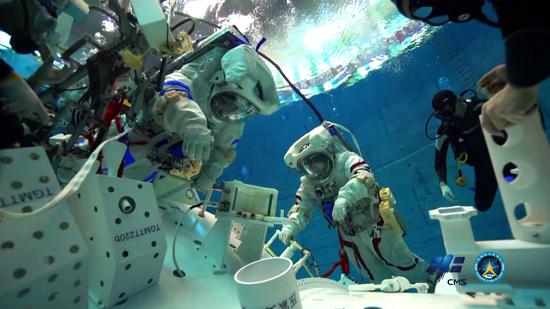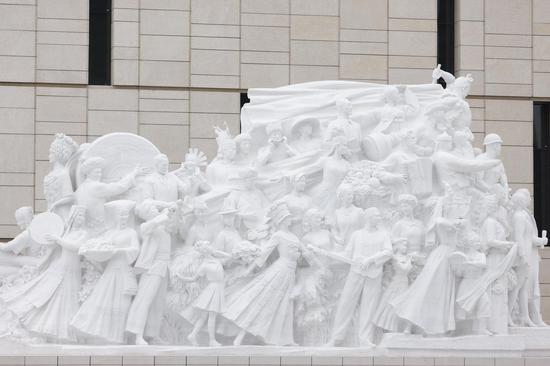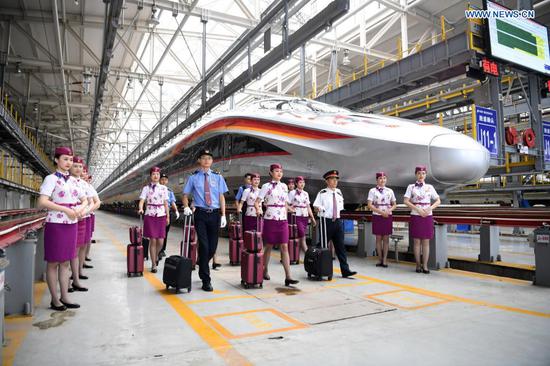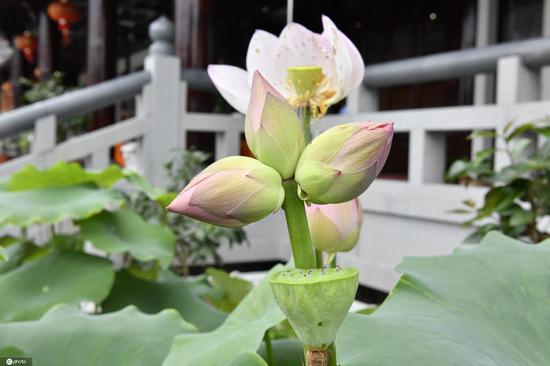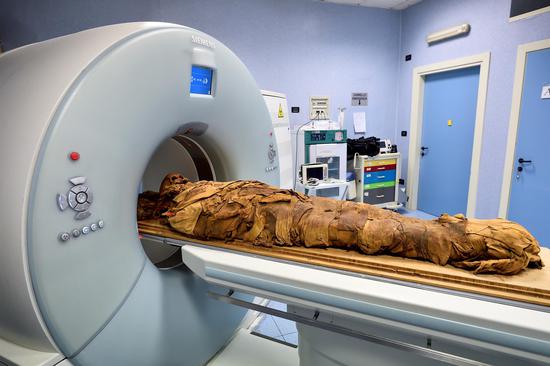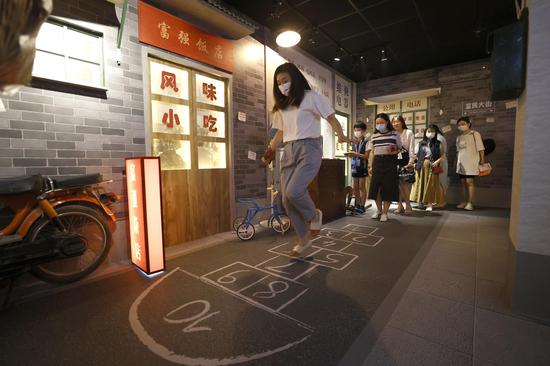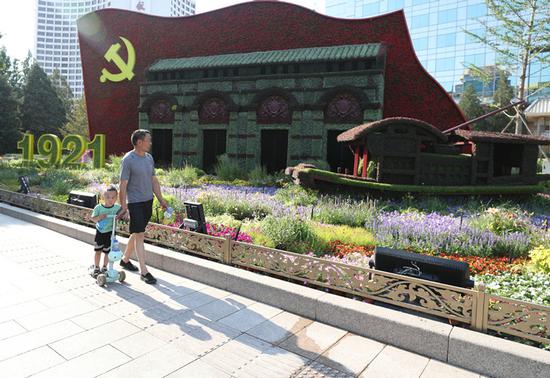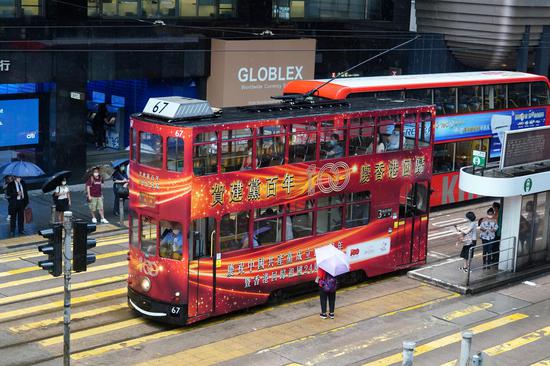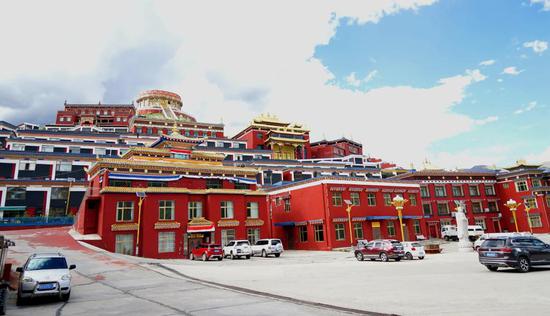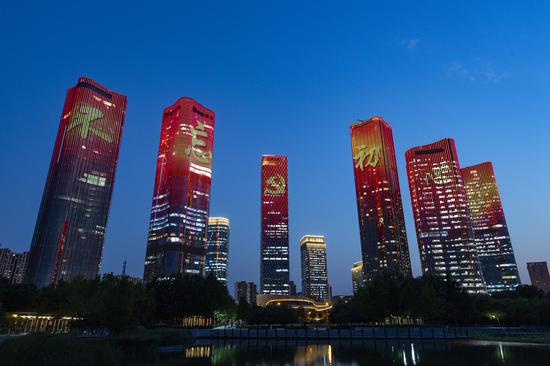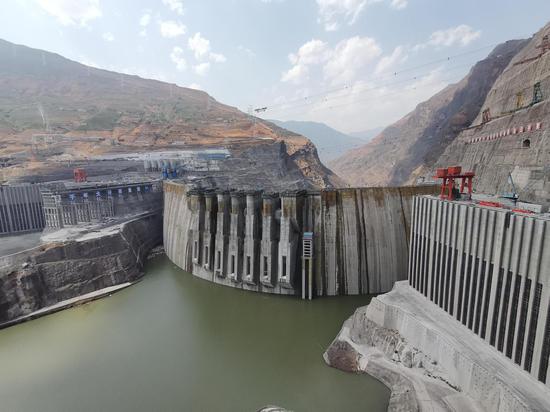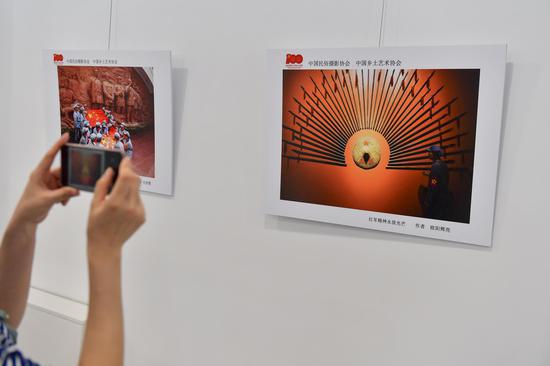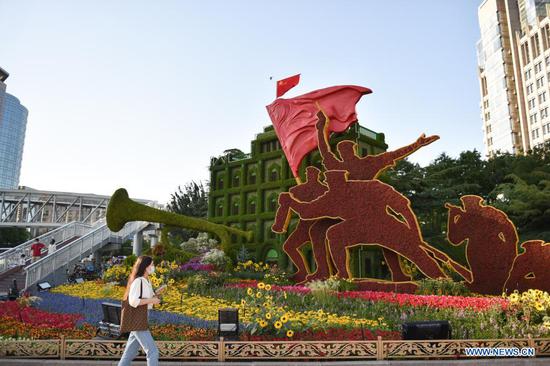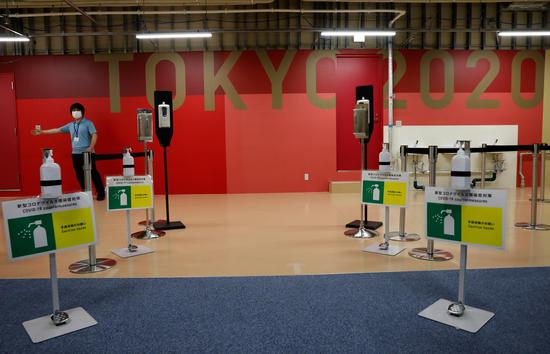VI. Advancing Human Rights Around the World
The CPC is committed to bringing freedom and happiness to the Chinese people, and peace and progress to the whole of humanity. Its achievements prove that it is a peace-loving political party committed to progress, justice and human rights in the world.
1. Devoted to World Peace and Progress
Since the founding of the PRC in 1949, the CPC has taken world peace as its most serious concern, because it is critical to the future of humanity. China supported the efforts of developing countries to get rid of colonial domination, achieve national independence, and end racial segregation. In the 1950s, the CPC initiated the Five Principles of Peaceful Coexistence:
•mutual respect for sovereignty and territorial integrity
•mutual non-aggression
•non-interference in each other's internal affairs
•equality and mutual benefit
•peaceful coexistence
In 1955, the Bandung Conference set these five principles as the basis for Asian and African countries to establish friendship, cooperation and good-neighborly relations. The Non-Aligned Movement that rose in the 1960s set these principles as its guideline. These principles were also accepted in a number of declarations adopted at the 1970 and 1974 UN general assemblies. The five principles have been an important foundation by which the CPC handles China’s foreign affairs, and have become a cornerstone of international law and international relations, widely recognized and observed by the international community.
During the late 1970s and early 1980s, the CPC made the judgment that peace and development are the themes of today’s world. Upholding peace, development, cooperation and mutual benefit, China has become a major force in promoting world peace and progress. Adhering to the purposes and principles of the United Nations Charter, China is committed to upholding the UN-centered international system and the international law-based global order. To promote peaceful settlement of disputes, and safeguard world peace and regional security and stability, it advocates global governance based on extensive consultation, joint contribution and shared benefits, and champions a new vision of security that is common, comprehensive, cooperative and sustainable.
China began to participate in UN peacekeeping operations in 1990, and dispatched peacekeeping police for the first time in 2000. It now ranks first among the permanent members of the UN Security Council in terms of the number of peacekeepers dispatched, and is the second largest fund contributor to the UN's peacekeeping actions. China has sent more than 40,000 military personnel to participate in about 30 UN peacekeeping missions in Sudan, Lebanon, Cambodia, Libya, and other countries and regions.
China actively participates in international arms control, disarmament and non-proliferation, opposes arms races, and safeguards global strategic balance and stability. China has signed up more than 20 multilateral arms control, disarmament or non-proliferation treaties such as the Treaty on the Non-Proliferation of Nuclear Weapons. As a UN Security Council permanent member, China is active in the political settlement of international and regional flashpoints, and in international cooperation on law enforcement and security. To combat terrorism, separatism, extremism, and drug-related crimes it has intensified cooperation under the framework of international and regional organizations, including the UN, the International Criminal Police Organization and the Shanghai Cooperation Organization.
Committed to poverty elimination and its own development, China also provides assistance, without any political conditions, to strengthen other developing countries’ capacity for development, improve and enrich the lives of their people, and promote their economic growth and social progress. China’s aid takes various forms, including complete projects, goods and materials, technological cooperation, cooperation on training human resources, medical teams and volunteers, humanitarian aid, and debt relief. Over the past seven decades, it has assisted 166 countries and international organizations, sent over 600,000 people on aid missions, and canceled matured government interest-free debts owed by heavily indebted poor countries and least-developed countries on seven occasions. It has provided medical assistance to 69 Asian, African, Latin American and Caribbean, and Oceanian countries, and helped more than 120 developing countries achieve the UN Millennium Development Goals. Since 1998, in order to support mine-clearance in over 40 affected countries and help their rebuilding efforts, China has provided RMB100 million in the forms of donations, materials, training sessions and on-the-spot guidance, and trained more than 1,000 demining specialists.
China actively participates in the consultations on the UN 2030 Agenda for Sustainable Development. It has implemented the agenda at home in all respects, and took the lead in publishing its national plan and progress report, delivering early results in a number of fields. China has assisted other developing countries to pursue the agenda within the south-south cooperation framework. By 2020, the 2030 Agenda for Sustainable Development Sub-Fund of the China-UN Peace and Development Trust Fund had launched 34 projects covering the economy, society and the environment in support of the agenda. The South-South Cooperation Assistance Fund launched by China in 2015 has carried out over 100 development cooperation projects concerning disaster relief, health, women and children, refugees and environmental protection in more than 50 countries in Asia, Africa, America and other continents.
2. Engaging in International Human Rights Undertakings
China has signed 26 international human rights instruments, including six core UN conventions. It fulfills its obligations prescribed in these human rights conventions, ensures that the formulation, legislation, and any amendments of its laws and policies are consistent with these conventions, and submits periodic reports to give feedback on the progress made and any difficulties and problems encountered in implementing them. China attends the reviews from the treaty bodies on its implementation. China has conducted constructive dialogue with the relevant treaty bodies and adopted their suggestions in accordance with the actual conditions in China. It has also undertaken three cycles of United Nations Human Rights Council (UNHRC) Universal Periodic Review since 2009, with its reports being adopted, and it has given due attention and responsible feedback to all suggestions from other countries. Most countries have affirmed China’s achievements in this regard and its contribution to international human rights.
Since China recovered its legitimate seat in the UN in 1971, it has played an active role in international human rights issues. In 1982, China became an official member state of the UN Commission on Human Rights (UNCHR) and has maintained this position ever since. Since the UNHRC was established in 2006, it has been elected a council member five times, and about 20 Chinese experts served on the UN’s multilateral human rights organizations and special commissions.
China maintains constructive contacts with the Office of the High Commissioner for Human Rights (OHCHR), receiving eight visits by the UN High Commissioner for Human Rights to China, and inviting many of the OHCHR officials to visit China. By April 2021, China has invited 11 visits by nine UN representatives and groups:
•the UN Special Rapporteur on freedom of religion or belief,
•the UN Working Group on Arbitrary Detention,
•the UN Special Rapporteur on the right to education,
•the UN Special Rapporteur on Torture and Other Cruel, Inhuman or Degrading Treatment or Punishment,
•the UN Special Rapporteur on the right to food,
•the UN Working Group on discrimination against women and girls,
•the UN Independent Expert on foreign debt,
•the UN Special Rapporteur on extreme poverty and human rights, and
•the UN Independent Expert on the enjoyment of all human rights by older persons.
China handles letters from the Special Procedures of the UNHRC with due attention, carrying out any necessary investigations and giving timely replies.
China is a contributor to international human rights standards:
•It has attended the meetings of the drafting groups of the Convention Against Torture and Other Cruel, Inhuman or Degrading Treatment or Punishment, the Convention on the Rights of the Child, the Convention on the Rights of Persons with Disabilities, the International Convention on the Protection of the Rights of All Migrant Workers and Members of Their Families, and the Optional Protocol to the International Covenant on Economic, Social and Cultural Rights, along with other important documents on human rights protection.
•As one of the major initiators, it took part in the drafting of the Declaration on the Right to Development.
•It urged other Asian countries to adopt the Bangkok Declaration on human rights in 1993, and participated in drafting the Vienna Declaration and Programme of Action at the Second World Conference on Human Rights.
•It actively participates in the formulation of international rules on labor protection, humanitarianism and social responsibility.
•As one of the first signatories to the UN Framework Convention on Climate Change, it participated in and effectively promoted the whole multilateral process of climate change issues, and made a positive contribution to the adoption of the Paris Agreement.
China supports the reform of international human rights organizations in a fair, rational and inclusive direction. In establishing the UNHRC, China advocated membership based on equitable geographical distribution, so as to increase the representation of developing countries. It proposes to reverse the present practice of politicizing human rights issues, do away with double standards, refrain from confrontation or minimize its impact, facilitate cooperation, and encourage the UNHRC to review human rights issues in a just, objective, non-selective and universal manner. China supports the UNHRC in establishing specialized mechanisms for securing safe drinking water, protecting cultural rights, and defending the rights of persons with disabilities. It advocates for special conferences on food security and global financial mechanisms, and promotes the international mechanisms for protecting human rights. China stands by the necessary reform of the human rights treaty bodies, seeing that they perform their duties within their mandate and engage in dialogue and cooperation with signatory states on the basis of mutual respect.
Since 1990, China has held dialogues and discussions on human rights with Western countries and international organizations such as the US, Australia, Canada, the UK, Norway, Germany, the Netherlands, Switzerland, New Zealand and the EU, and held consultations with developing countries and international organizations including Russia, Egypt, South Africa, Brazil, Malaysia, Pakistan, Belarus, Cuba, and the African Union. The China Society for Human Rights Studies, China Foundation for Human Rights Development and other human rights NGOs in China have taken an active part in the UNHRC conferences and activities, organized teams to visit dozens of countries in Asia, North America, South America, Europe, Oceania and Africa. They have also invited government officials, experts and academics on human rights from various countries to visit China to enhance mutual understanding and trust. Through a series of international mechanisms like the Beijing Forum on Human Rights, the South-South Human Rights Forum, the China-Europe Seminar on Human Rights, and the Sino-American Dialogue on the Rule of Law and Human Rights, China has expanded its exchanges and cooperation with other countries on human rights, leading to greater mutual understanding in this respect.
3. Building a Global Community of Shared Future
Belt and Road cooperation is a major platform for building a global community of shared future. Upholding the principle of extensive consultation, joint contribution and shared benefits, and pursuing open, green and clean cooperation, the Belt and Road Initiative promotes policy, infrastructure, trade, financial and people-to-people connectivity and targets high-standard, sustainable and people-centered goals. It is an initiative for common development and also for protecting human rights. According to a World Bank study, the initiative could help lift 7.6 million people out of extreme poverty and 32 million people out of moderate poverty. It could boost trade by 2.8 to 9.7 percent for the corridor economies, and by 1.7 to 6.2 percent for the world. Global real income could increase by 0.7 to 2.9 percent. In addition to a path towards peace, prosperity, opening up, innovation, and cultural exchanges, the Belt and Road is also a route to common development and full human rights for the whole of humanity.
China is also striving to create a just and rational global environmental governance system driven by cooperation and mutual benefit, and eventually to build a community of harmony between humanity and nature. China has established the China-EU High-Level Environment and Climate Dialogue, and continued south-south cooperation on climate change. It inaugurated the China-Africa Environmental Cooperation Center, and promoted the adoption of the Post-2020 Global Biodiversity Framework. Taking eco-environmental cooperation as a major element of Belt and Road cooperation, it has launched a series of green action initiatives, and adopted such measures as green infrastructure construction, green energy, green transport and green finance, so as to deliver solid benefits to all peoples of the countries participating in the Belt and Road. China has announced that it will try to make its carbon dioxide emissions peak before 2030 and will strive to achieve carbon neutrality before 2060. This strategic policy decision is based on its commitment to help build a global community of shared future and its internal need for sustainable development.
China has engaged itself actively in building a global community of health for all. By building hospitals, offering medicine and medical equipment, dispatching medical teams, training local healthcare workers, and carrying out exchanges and cooperation on disease prevention and control, it has helped recipient developing countries further improve their medical and healthcare provision, raise the standards of their disease prevention and control, and strengthen their capabilities in public health. By April 2021, it had dispatched 27,000 medical workers on aid missions abroad, who have treated 280 million patients.
China has been carrying out exchanges and cooperation with the international community since the onset of the Covid-19 epidemic. It has done all it can to provide assistance and support to international organizations and other countries, contributing ingenuity and strength to the global battle against the coronavirus. President Xi Jinping acted in person to promote international cooperation, calling for solidarity from all countries in the battle, and joint efforts in building a global community of health for all. By April 2021, China had donated USD50 million in cash to the World Health Organization (WHO), and sent 37 medical expert teams to 34 countries. It has already provided or is offering assistance to 151 countries and 14 international organizations, and has contributed to the UN Covid-19 Global Humanitarian Response Plan. All these efforts support international epidemic prevention and control. At the same time, China has strengthened communication and exchanges with the WHO, conducted exchanges and cooperation with other countries on research in virus traceability, medicines, vaccines, and testing, shared scientific research data and information, and jointly studied prevention, control and treatment strategies.









